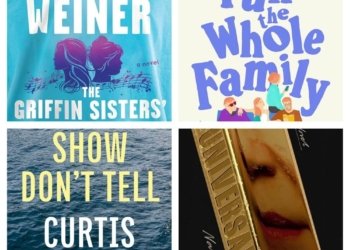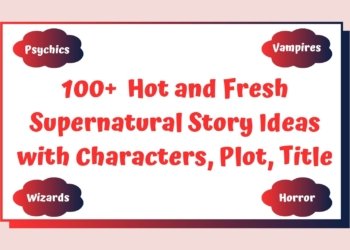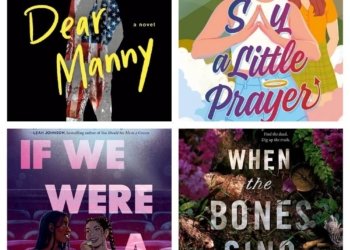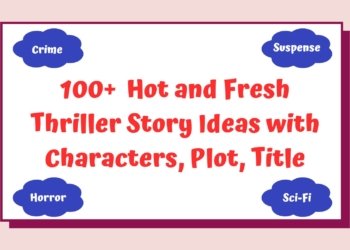No products in the cart.
A Conversation with Julianne MacLean, a Contemporary Women Fiction Author
Julianne MacLean is a USA Today bestselling author of more than fourty novels, including the popular Color of Heaven series.
109
SHARES1.5k
VIEWSJulianne MacLean is a USA Today bestselling author of more than fourty novels, including the popular Color of Heaven series. Readers have described her books as “breathtaking,” “soulful,” and “uplifting.” MacLean is a four-time Romance Writers of America RITA finalist and has won numerous awards, including the Booksellers’ Best Award and a Reviewers’ Choice Award from the Romantic Times. Her novels have sold millions of copies worldwide and have been translated into more than a dozen languages.
MacLean has a degree in English literature from King’s College in Halifax, Nova Scotia, and a business degree from Acadia University in Wolfville, Nova Scotia. She loves to travel and has lived in New Zealand, Canada, and England. She currently resides on the east coast of Canada in a lakeside home with her husband and daughter.
Let’s get started with a quick rapid fire.

Q1. If you could be transformed into one mythological creature, which one would you choose?
Fairy.
Q2. What time do you usually go to bed at night?
Midnight.
Q3. What are the least-likely three words someone would use to describe you?
She loves watersports.
Q4. Where did you go on your last vacation?
New York City to see Billy Joel.
Q5. Would you rather find your dream job or win the lottery? You can’t do both.
Keep the dream job.
Q6. What is one thing you regret spending money on?
Every pair of stiletto heels I’ve ever bought.
Q7. What object do you misplace or lose the most?
Whatever object my husband touches.
Q8. If you were a spy, what would be your codename?
Night Owl.
Q9. What secret about the universe would you most want to learn?
Is there an afterlife.
“Life is hard. It’s cruel sometimes. It’s merciless and unfair, but we all go through difficult times, one way or another.”Julianne MacLean, The Color of Heaven
Q10. What never fails to make you laugh?
Bradley Cooper and Jimmy Fallon Can’t Stop Laughing.
Q11. What was one “before” and “after” in your life?
Before I gave birth to my daughter and after. Motherhood grows your heart and deepens your soul.
Q12. What do you think people misunderstand about you?
No one truly understands my lifelong battle with Foot in Mouth Disease.
It’s time for a more detailed conversation, Julianne.
You’ve answered our rapid fire so well, Julianne. Now, it’s time for our readers to know more about the person behind the book.
Q. Tell us about your journey.
I started keeping a diary when I was twelve, and I wrote in it faithfully every night until I got married. I remember, in junior high school, feeling a burst of excitement when something exciting happened because I’d say to myself, “I can’t wait to write about this tonight.” So, I suppose I always had the writing bug; I just didn’t recognize it as a possible career path. Then I majored in English in university, simply because it was my favorite subject—but still, it never dawned on me that I could become a professional writer. Eventually, I got a “real job” as an accountant, and that’s when I began to write fiction on the weekends. Interestingly, that’s exactly when I stopped writing in my diary—the day I began writing my first novel. I wrote the first paragraph of that book (which was never published) a month before my wedding. But it’s important to mention that my first published book was actually the fifth book I’d written. The first four didn’t sell. So, I suppose by then I had found my voice, and I’d learned how important it was to keep moving forward and start writing new books, applying what I’d learned previously if I wanted to keep growing as a writer. I’ve been doing that ever since, and I’m still learning and growing with every new book I write.
Q. So, what books have you read more than once in your life?
The Shell Seekers, Wuthering Heights, Little House on the Prairie, Dark Champion
Q. Interesting. Who has been the biggest supporter of your writing?
My husband, Stephen. He didn’t bat an eye when I said I wanted to quit the accounting profession to write novels, and he took care of our baby daughter whenever he could to give me time alone to write. These days he cooks dinner so I can keep writing in the afternoons.
“I wanted to believe that in the end, the universe would take care of us, and we would end up exactly where we were meant to be.”Julianne MacLean, A Fire Sparkling
Q. Do you hide any secrets in your books that only a few people will find?
Yes! I often choose local Nova Scotia locations as character names or fictional town or street names.
Q. Now comes the most anticipated question that every author must answer. How do you process and deal with negative book reviews?
The first time I read a bad review, I was very down for a few days. Then I spent about 2 hours reading one-star reviews for some of my favorite books and authors, and it made me feel more immune to the negativity from that day forward, because those reviews seemed so wrong and ridiculous to me. But mostly these days, I try to avoid reading them if possible because they can negatively affect my confidence regarding the current work-in-progress, and that can make me doubt my story and slow me down. If I need a review quote for promotional purposes, I will filter for only five-star reviews so that I don’t accidentally read something that will upset me. Life’s too short for that.
Q. What comes first for you — the plot or the characters — and why?
Usually the plot, but it varies. With A STORM OF INFINITE BEAUTY, I started with the Alaskan setting and earthquake, and from there my research gave me plot and scene ideas, and I created characters with the right kind of personal baggage and goals to navigate through those events.
“Just like the waves that keep rolling onto the beach, happiness may recede sometimes, but then it comes back. It always comes back.”Julianne MacLean, A Curve in the Road
Q. How do you develop your plot and characters?
I develop both at the same time over a couple of months while researching and coming up with story ideas. I write my notes and ideas longhand with a mechanical pencil, in a coiled notebook, and that will include scene ideas and character sketches, backgrounds, etc. It’s all a jumbled mess until I feel like I have everything I need to get started. Then I sit down and write a proper, coherent synopsis to use as my road map to get started on chapter one, or to submit to a publisher if I’m trying to get a new contract. Writing that synopsis is like tidying up my cluttered desk and organizing all the papers.
Q. You got 100 points. You need to divide them on the basis of how relevant and important they are to you as a reader and a writer for your book or someone else’s as a reader. Your options are Plot/Story, Book Cover, Marketing, and, Reviews.
Plot/Story/Characters/Dialogue 70, Book Cover 10, Marketing 10, Reviews 10.

Q. So, now, about your book. Talk to us about it. No major spoilers.
A STORM OF INFINITE BEAUTY is a dual timeline which takes readers back to the great Alaskan earthquake of 1964 (a true historic event), so there’s quite a bit of action surrounding the main character’s emotional journey. I think readers will enjoy the escape to stunning and beautiful Alaska while learning about what happened there in 1964. And they’ll experience it through the eyes and hearts of the two female leads who each have personal battles to fight in their own lives. And of course, there’s a love story at the book’s core, which readers have come to expect from me. I don’t think I could write a book without a love story, even if it’s tragic or unrequited.
Q. What part of the book did you enjoy the most while writing?
I enjoyed writing about the earthquake from different characters’ points of view.
Q. What is your kryptonite as a writer?
Two things equally:
A. Being forced to write something I’m not passionate about.
B. A lack of support (or incompetence) from a publisher, which results in not getting paid fairly for the work. (My current publisher is terrific by the way.)
Q. Would you and your main character get along in real life?
Always, yes!!
Q. What is your writing process like? Are you more of a plotter or a pantser?
Overall, I’m more of a plotter. I often start with a setting and inciting incident. Then I figure out who the characters are (in very broad strokes at first). I like to have the whole story plotted out before I begin writing, so I sit down with my all-important mechanical pencil and describe what happens in the first scene as I visualize it. Then I just keep asking myself over and over, “And then what happens?” I write the next big scene idea to move things along, and ask myself again: “And then what happens?” This is when new characters enter the story as I add new layers of conflict for the main character. It can take weeks to get all the way to the end and figure out all the twists and turns and how everything gets resolved.
Q. Let’s talk about the process of writing. Do you do research while writing a book to add more authenticity? What kind of research?
I do a ton of research before I even begin to plot a book, and the research helps me come up with story ideas based on real events. I purchase my books so that I can make notes in the margins, which makes it easier to refer back to those topics later as I’m writing.
“No one gets to quit. You keep fighting, every day, and sooner or later, the grief fades a little. You grow stronger, find joy again, and everything gets easier. You come out of it more equipped to handle the next wave, which will come eventually. There will always be waves.”Julianne MacLean, The Color of Heaven
Q. What was your hardest scene to write?
I always find the last scene of any novel the most difficult to write because I put a lot of pressure on myself to make sure I deliver a satisfying conclusion. The last paragraph is the hardest of all.
Q. Well, this has been great. Now, before we wrap this up, do you have any suggestions to help someone become a better writer? If so, what are they?
First and foremost: Use strong verbs! And remember that the first draft doesn’t have to be perfect, but it’s important to develop strong skills for rewriting and polishing to tighten your manuscript and make your sentences sing. Never stop learning from your editors and critique partners so that you will always keep getting better and better.
Her next book “A Storm of Infinite Beauty” comes out September 12th, 2023 and will be available in paperback and on Kindle.
Related Posts
8 Most Anticipated Contemporary Books of Spring 2025
Are you a bookworm always on the lookout for the next big literary gem to dive into? Well, get ready...
100+ Supernatural Story Ideas to Unleash Your Inner Author
Are you ready to pen the next great supernatural novel? The supernatural genre has always captured our imaginations. It explores...
8 Most Anticipated Young Adult Books of Spring 2025
As the days grow longer and the air warms with the promise of spring, the literary world awakens with a...
100+ Bestselling Thriller Novel Story Ideas for 2025
Welcome, aspiring authors, to the thrilling universe of storytelling where your next bestseller is just a spark of inspiration away!...
About Us

Trenzle
Where Trends are made and discovered
Trenzle is your official source of discovering the latest people, work, and ideas that deserve to trend. Discover Authors and their books, Creators and their work, People and their opinions, and Stories from around the globe.
Learn more
Latest Posts
Categories
© 2023 Trenzle - Online Author News & Magazine










